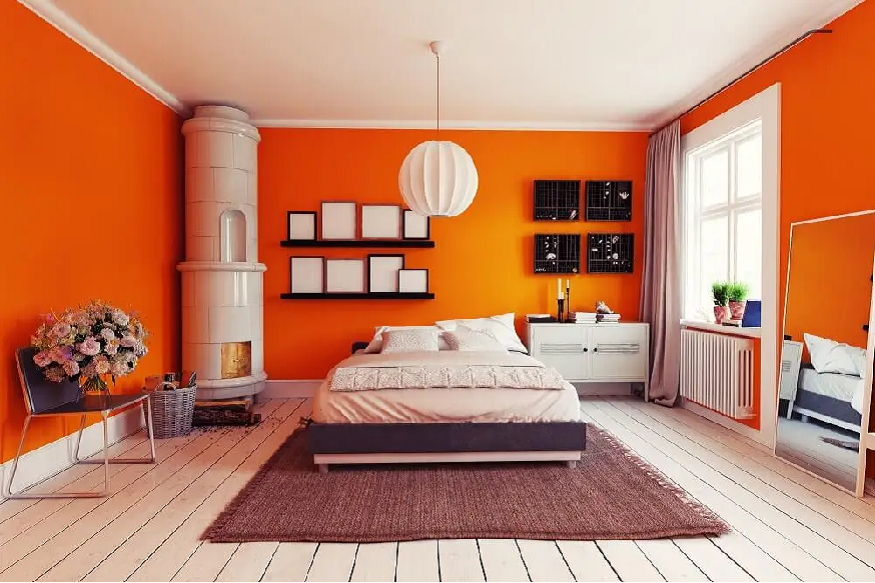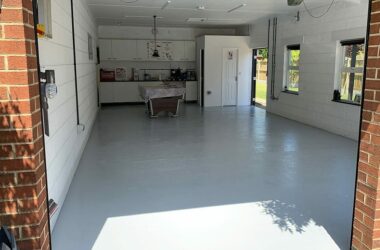In a country like India, where urban living often means compact apartments and small rooms, creating a sense of openness and comfort in limited spaces is both an art and a science. The right paint can transform confined areas into airy, inviting havens.
Strategic colour choices can make all the difference, whether you’re dealing with a compact bedroom, a narrow hallway, or a petite living room. Here’s a guide to using paint to create the illusion of space, enhance light, and breathe new life into small interiors.
1. Go Light for Maximum Impact
Light colours have a remarkable ability to open up small spaces. Shades like soft whites, pale pastels, and muted creams reflect more natural and artificial light, making rooms feel brighter and larger.
For small Indian homes, off-white or ivory is an ideal base colour that works well with warm wooden furniture and traditional décor elements. These hues enhance spaciousness and create a neutral canvas that allows accents like cushions, rugs, and artwork to stand out.
2. The Magic of Cool Tones
Cool-toned colours such as soft blues, light greens, and gentle greys can make walls seem to recede, adding depth and airiness to a room. For instance, light aqua paint on the walls can evoke the tranquillity of water, bringing a calming and expansive feel to bedrooms or study areas.
In India’s often warm climate, these cool hues can also have a psychological effect, making the space feel more refreshing and comfortable.
3. Create Vertical Illusions with Stripes
Vertical stripes painted on walls are a clever trick for making low-ceilinged rooms appear taller. To create subtle stripes, use alternating soft and slightly darker shades of the same colour.
For instance, in small Indian living rooms or dining areas, soft beige and cream stripes can add a touch of elegance while enhancing the vertical dimensions of the room. Avoid bold or contrasting stripes, as they may overwhelm a small space.
4. Embrace Monochromatic Schemes
Painting walls, ceilings, and trim in the same colour—or slightly varied shades of it—creates a seamless, unified look. This approach eliminates visual breaks, giving the impression of a larger, more cohesive space.
For compact Indian kitchens, using a single, light shade such as pale yellow or mint green can work wonders. Pair it with reflective surfaces like glass or glossy tiles for added luminosity.
5. Highlight with Accent Walls
While light colours dominate in small spaces, accent walls can add character without overwhelming the room. Choose a single wall to highlight with a darker or bolder paint colour, such as teal, olive, or terracotta, while keeping the other walls neutral. A deep ochre or turmeric-toned accent wall can bring a touch of warmth and cultural charm, especially in small living rooms or prayer corners.
6. Maximise Natural Light with Reflective Paints
Glossy or semi-gloss paint finishes reflect light better than matte finishes, making rooms feel brighter. These finishes are particularly useful in compact spaces with limited natural light, such as inner-city apartments.
For example, using a soft pearl or light grey semi-gloss paint in narrow hallways can create a luminous and welcoming atmosphere.
7. Go for Dual-Tone Walls
Dual-tone walls, where the bottom half is painted a darker shade and the top half a lighter shade, can add depth and dimension to small spaces. This technique draws the eye upward, creating a perception of height.
For Indian homes, pairing earthy tones like clay or rust with pale beige or cream can beautifully balance traditional aesthetics with modern sensibilities.
Conclusion
The right paint can transform even the smallest spaces into airy, welcoming havens. Homeowners can enhance brightness, create depth, and achieve a sense of spaciousness by choosing light, reflective, and cohesive colours.






